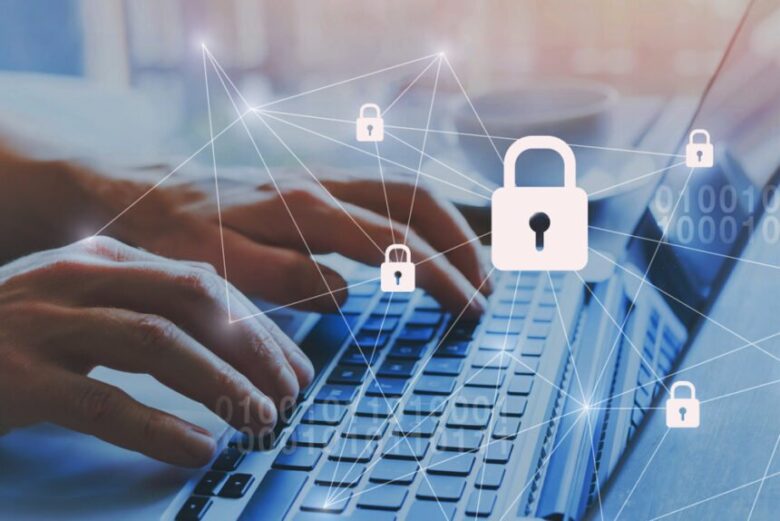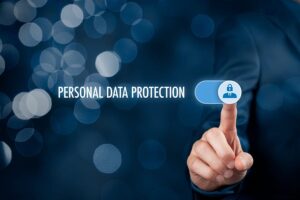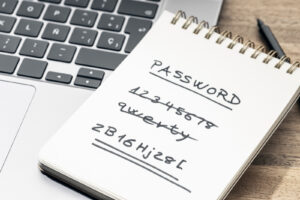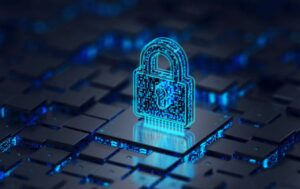In today’s digital world, data breaches pose one of the greatest risks for individuals and businesses. Cybercriminals are constantly looking for new ways to obtain private data, such as banking information, trade secrets, and personal information. A single data breach can cause enormous financial losses, damage a company’s image, and even violate the law. Large corporations aren’t the only ones who need to protect their data from hackers; everyone who uses digital services should. By learning effective data security practices, you can protect your important data and maintain trust in online systems.
Why Strong Passwords Are So Important
The best way to protect your data from theft is to use strong passwords. If passwords are weak or simple to crack, attackers can easily hack into accounts and obtain personal information. Strong passwords are difficult to crack because they contain uppercase and lowercase letters, numbers, and special characters. Also, each account must have a unique password to protect other systems if one is hacked. Using a password manager can help you create and remember complex passwords, reducing the risk of unauthorized access and protecting your privacy.
Set up multi-factor authentication.
Multi-factor authentication (MFA) adds an extra layer of security to your accounts and personal data. MFA requires an additional method to verify your identity, such as a verification code sent to your phone or a fingerprint scan, preventing someone from obtaining your password. This extra step significantly reduces the risk of unauthorized access. By using multi-factor authentication (MFA) in business, banking, and email accounts, you ensure that hackers, even if they gain access to your login credentials, will find it difficult to break in. This makes MFA an important tool for preventing data breaches.
Patch and Update Software Regularly
Cybercriminals prefer to attack outdated systems and software. Hackers exploit vulnerabilities in operating systems, applications, and plugins to obtain unauthorized data. These vulnerabilities can be addressed and protection improved by installing security patches and keeping software up-to-date. Individuals and businesses should update their systems promptly to ensure all systems are protected against known threats. Timely system updates reduce the risk of attacks and protect the security of private data.
Employee Training and Awareness
Business employees are often the weakest link in data protection. Cybercriminals use social engineering, phishing emails, and other methods to trick employees into disclosing private data. By providing employees with comprehensive training and understanding of information protection best practices, the risk of errors can be significantly reduced. Employees who understand how to identify risks, handle data securely, and report unusual behavior establish a robust defense against potential data breaches.
Protect Private Data with Encryption
Data encryption secures data by transforming it into files that only those with the correct decryption key can read. Whether private data is stored on servers, over a network, or on mobile devices, encryption ensures that cybercriminals, even if they gain access, cannot read or use the data. Personal and group data must be encrypted to protect financial information, personal data, and confidential company data. Encryption is a crucial security measure against data breaches and essentially adds an extra layer of defense.
Regular Backups and Recovery Plans
A key measure to prevent data losses from breaches is to create regular backups. The most recent backup can aid in the most effective recovery of data in the event of loss, theft, or encryption. Businesses should use automated backup systems and store data in secure locations. In addition to backups, a comprehensive data recovery plan ensures rapid system recovery and minimizes downtime. Preparing for potential data breaches increases your resilience and reduces the long-term damage caused by cyber incidents.
Monitoring and Incident Response
Continuously monitoring networks, systems, and accounts is crucial for detecting anomalous behavior and preventing security breaches from escalating. More advanced monitoring tools can detect abnormal patterns, unauthorized intrusion attempts, or unusual changes in system operation. In addition to monitoring, developing a clear incident response plan ensures that any security breach is addressed quickly. Immediate action reduces exposure, protects compromised data, and prevents further attacks. Individuals and organizations that employ proactive tracking and response strategies are better able to protect their private data.
Conclusion
Strong passwords, multi-factor authentication, software updates, employee training, data encryption, regular backups, and continuous tracking all contribute to preventing data breaches. These strategies help make the internet more secure and prevent hackers from accessing private data. In today’s digitally connected world, individuals and businesses must take these measures to protect their personal and business data. Using these proven methods significantly reduces the risk of data breaches and helps you maintain customer trust and protect their sensitive data.
FAQs
1. What is a data breach, for example?
A data breach occurs when someone who shouldn’t have access to private data, personal information, banking details, or trade secrets gains access.
2. Why are strong passwords important?
Cybercriminals can crack accounts with strong passwords much more difficultly, reducing the risk of data breaches.
3. What is multi-factor authentication?
Multi-factor authentication adds an extra verification step, such as a CAPTCHA or biometric scan, to ensure that even if someone obtains your password, others cannot access your account.
4. How does encryption protect data security?
After data is encrypted, it is converted into a secure format that cannot be read without the decryption key. The security of the data is assured even in the event that hackers manage to access it.
5. Why is it important to train employees in data breach prevention?
Employees who understand cybersecurity risks and best practices are less likely to make mistakes that could allow hackers to obtain their private data.




